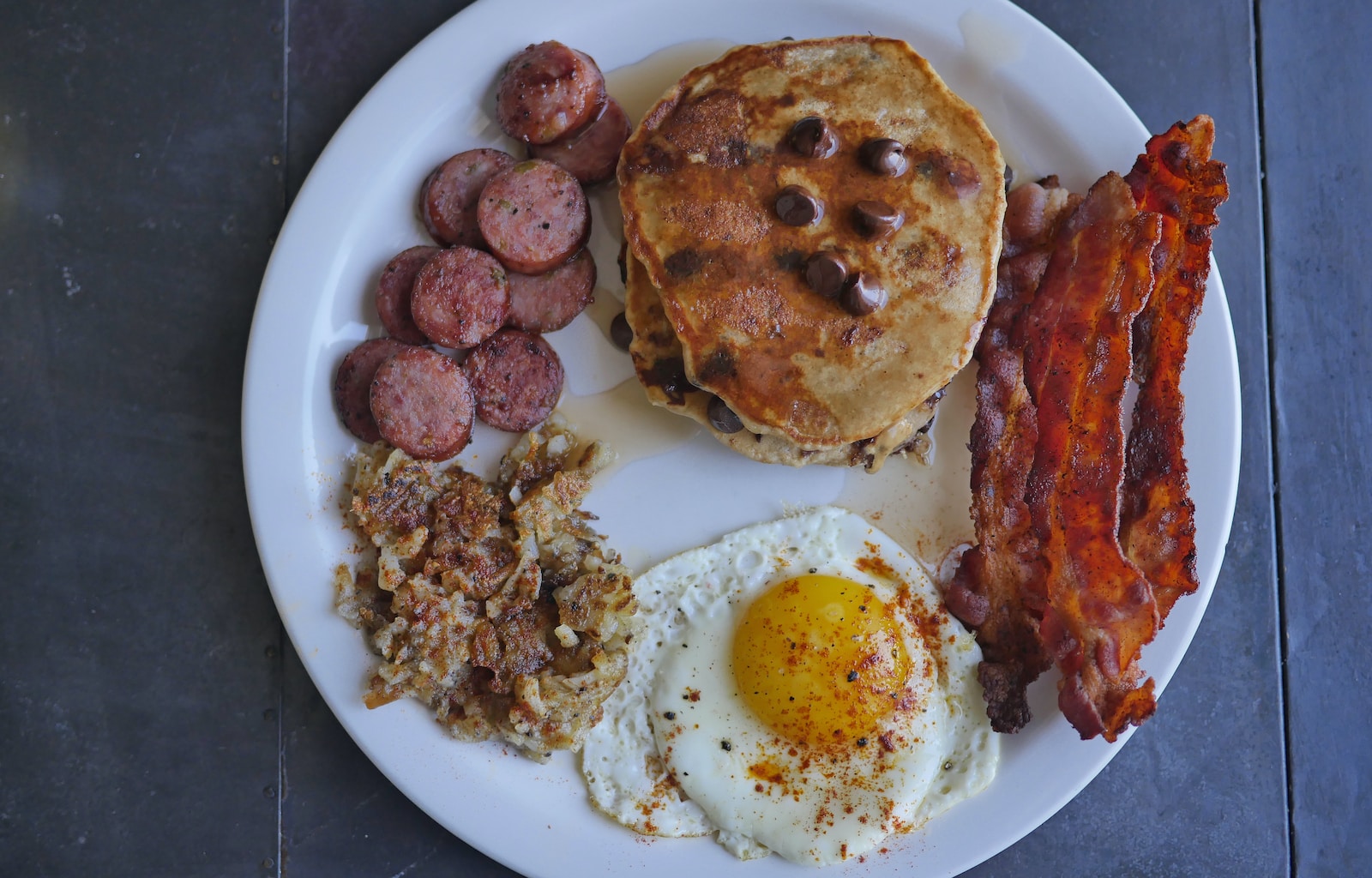CookingSubstitutes is a blog dedicated to exploring suitable alternatives in recipes, providing helpful how-to guides, and sharing mouthwatering recipes.
We're here to make your culinary adventures even more delightful!
10 Best Egg Substitutes for Pancakes

If you’re looking for an egg substitute for pancakes, whether due to dietary restrictions, allergies, or simply because you’re out of eggs, you’re in luck! There are plenty of options available that can still deliver delicious and fluffy pancakes. In this article, we’ll explore 10 different alternatives that you can use to make your pancake breakfast a success. Let’s dive in!
Whether you follow a vegan lifestyle, have egg allergies, or want to try something new, these alternatives will help you create delicious and nutritious pancakes.
Why Are Eggs Used in Pancakes?
Before we explore egg substitutes, let’s understand why eggs are used in pancakes in the first place. Eggs serve several purposes in pancake recipes.
They act as a binder, adding structure and preventing the batter from falling apart. Eggs also provide moisture and contribute to the fluffiness of the pancakes.
Understanding the role of eggs will help us choose the right substitutes.
Nut Butter or Seed Butter
Nut butter or seed butter is one of the best egg substitutes for pancakes. These creamy spreads not only add flavor but also contribute to the binding and moistness of the batter. Replace each egg with ¼ cup of nut or seed butter.
Applesauce
Applesauce is another popular egg substitute for pancakes. Its natural sweetness and moisture content make it an excellent replacement for eggs. Use ¼ cup of unsweetened applesauce per egg in your pancake recipe.
Mashed Banana
Mashed ripe bananas are a delicious addition to pancakes and an effective egg substitute. The natural sugars in bananas help with browning and caramelization, while their creamy texture aids in binding. Replace each egg with ½ mashed ripe banana.
Flaxseeds
Flaxseeds are a fantastic plant-based alternative to eggs. When mixed with water, they create a gel-like substance that mimics the binding properties of eggs. Mix 1 tablespoon of ground flaxseeds to replace one egg with 3 tablespoons of water. Allow the mixture to sit for a few minutes until it thickens.
Chia Seeds
Like flaxseeds, chia seeds can also be used as an egg substitute in pancakes. Combine 1 tablespoon of chia seeds with 3 tablespoons of water and let it sit until it forms a gel-like consistency. Use this mixture to replace one egg in your recipe.
Yogurt
Yogurt is another great egg substitute for pancakes. It adds moisture and richness to the batter while helping with the binding. Use ¼ cup of plain yogurt for each egg in your pancake recipe. Greek yogurt or dairy-free yogurt alternatives work well, too.
Buttermilk
Buttermilk is a traditional pancake ingredient and can be an excellent egg substitute. Its acidity helps with leavening and tenderizing the pancakes. Use ¼ cup of buttermilk for each egg in your recipe. If you don’t have buttermilk, make a homemade version by adding 1 tablespoon of lemon juice or vinegar to 1 cup of milk and letting it sit for a few minutes.
Commercial Egg Replacers
Various commercial egg replacers on the market are specifically designed to substitute eggs in baking recipes. These products are often made from a combination of plant-based ingredients and starches. Follow the instructions on the packaging to determine the amount of egg replacer needed for your pancake recipe.
Also Read: Discover the 6 Best Half and Half Substitutes
Non-Dairy Milk
Suppose you’re looking for a simple and readily available option. In that case, non-dairy milk can be used as an egg substitute in pancakes. Soy milk, almond milk, oat milk, or any other non-dairy milk can be used in a 1:1 ratio to replace eggs. The milk adds moisture to the batter and helps bind the ingredients together.
Also Read: 13 Best Substitutes for Milk in Pancakes
Baking Soda and Vinegar Mixture
Combining baking soda and vinegar can create a chemical reaction that helps pancakes rise and become fluffy. Mix 1 teaspoon of baking soda for each egg with 1 tablespoon of vinegar. Add this mixture to your pancake batter and enjoy light and airy pancakes.
FAQs
Absolutely! Feel free to experiment and combine different egg substitutes to achieve the desired texture and flavor. However, remember that too many substitutions may alter the final outcome of the pancakes.
Yes! Many of these egg substitutes can be used in various baking recipes, including cakes, muffins, and cookies. Just be aware that the results may vary depending on the specific recipe and the role eggs play in it.
Pay attention to the batter’s thickness and adjust it as needed. If the batter is too thick, add a small amount of non-dairy milk or water to thin it out. Add more flour or a thickening agent like cornstarch if it’s too thin.
Yes, you can try a few other binding agents, such as arrowroot powder or agar-agar. However, these ingredients may not provide the same moisture and structure as the substitutes mentioned in this article.
Yes, you can make pancakes without any egg substitutes. Omit the eggs from your recipe and adjust the other ingredients accordingly. Remember that the pancakes may be slightly denser and less fluffy without eggs.
Conclusion
Whether you’re following a vegan diet, have egg allergies, or want to try something new, there are plenty of delicious alternatives to eggs in pancakes. Each substitute offers unique flavors and benefits, from nut butter and applesauce to mashed banana and flax seeds. Experiment with different options to find the one that suits your taste preferences and dietary needs.
Remember that while these egg substitutes work well in most pancake recipes, the texture and taste may vary slightly from those made with eggs. However, they are still a fantastic option for those who enjoy pancakes without eggs.
References
The Spruce Eats. Egg Substitutes for Pancakes.



